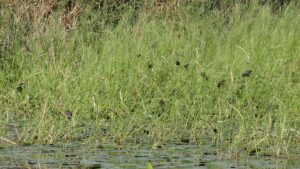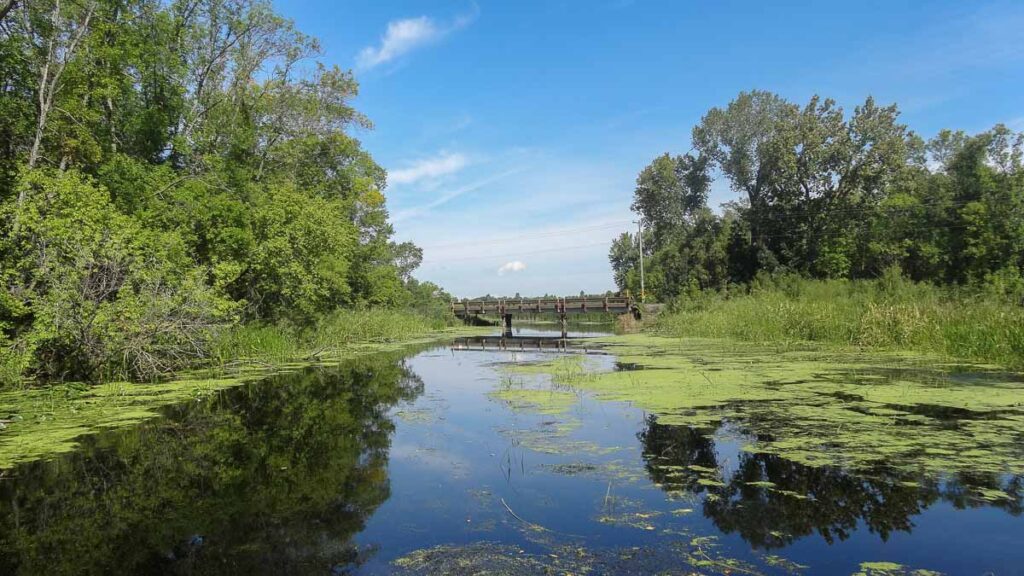Today I took a little trip on lakes Poygan and Winneconne looking for Wild Rice. I was curious to see how it was faring this year, and also looking for a bit to harvest. Formally these two lakes, especially Lake Poygan, were rice lakes; meaning a great potion of their surface area was covered with wild rice. In the 1800’s there would have been thousands of acres, today I can say there were a couple of acres, if I am generous. The most wild rice occurred in Boom Bay, which is located by the inlet of Wolf River. Much of the rice was short, but there were several tall, dense stands. Although there wasn’t a lot of rice there were red-winded black birds and wood and mallard ducks enjoying what was there.

As I approached the blackbirds on the rice bed, they refused to leave. I wonder if they were so full of rice they did not want to fly. In fact they barely moved at all, and made no calls. Now that I think about it, I wonder if they are ok. I’m sure they just had stuffed bellies from feasting. They looked as lethargic as I do after a Thanks’ Giving dinner.
Finding only a few scattered beds of wild rice on the lakes, I decided to head up the Wolf River to check out a few sloughs. None of the sloughs had much rice in them, so I ventured up the Rat River. I have spent a fair amount of time in the marshes and swamps of the Rat River State Wildlife Area, but I haven’t actually spent anytime on the river, so it was about time I explored the river.
I engaged my outboard motor and began my way up the river. The Rat is a slow river, and looks great to canoe of kayak on, and I plan on returning with my canoe someday. However, today I had my work/fishing boat, and I enjoyed the travel too. I found a few small beds of wild rice, but after traveling a couple of miles of river they didn’t even add up to be half an acre.
Although low on rice, the river was clear and full of other aquatic plants. Waving in the current were: Coontail, Eurasian Water-milfoil, and Water Stargrass to name a few. I eventually had to give up my travels when it got too shallow to proceed, which happened to be the first bridge to cross the river at South Road.
It is a shame that nearly all the wild rice is gone from the system. It once supported vast quantities of migrating waterfowl and even passenger pigeons now then. It would have also supported many small fish, invertebrates and other creatures. Today we have only a few beds to remind us of once was, but at least we have those.

